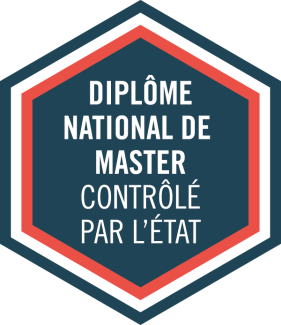
Teaching methods: Initial training, Continuing education
Location : Gap
Type of degree: Master
Duration of studies: 2 years
Output level: Bac+5
Language(s) : French
Department : Management Culture Territoires

-
Objectives
The objective of the GTDL Master's degree is to provide students with the skills necessary for jobs in the animation and development of rural and mountain territories. The aim is to train project leaders, who will be able to bring together and federate the different actors in the territory and thus contribute to its attractiveness, social cohesion and environmental quality.
Students will be led to build and carry out innovative actions in a wide range of fields (agriculture, food system, energy, mobility, sports leisure and tourism, quality of living environment, preservation of biodiversity, environmental risks) with a view to sustainable development and territorial resilience (digital spatial planning, short courses of study, alternative economic practices, etc.). These skills meet the needs of today's booming labour market in the private, public and associative sectors.
The Master's Degree in Territorial Management and Local Development provides students with interdisciplinary knowledge. This knowledge concerns environmental and socio-economic issues specific to rural and mountain territories: cultural and natural heritage, socio-ecosystemic vulnerabilities, legal and institutional frameworks.
Particular attention is paid to qualitative and quantitative interdisciplinary methodological tools. These tools make it possible to exploit existing socio-environmental data and to produce original data essential for the formulation of development projects for sustainable, resilient and mutually supportive territories.
Trained in project management in the private, public and associative sectors, students are able to anticipate and integrate major environmental issues and their local implications (climate change, energy transition, socio-natural risks, etc.).
The Master's degree offers students interdisciplinary skills aimed at designing and carrying out :
- Socio-environmental diagnoses of rural and mountain territories
- Socio-environmental prospects
- Qualitative and quantitative surveys of local stakeholders, the public and users
- Concertations of the actors of the territory, the public and users
The Master offers students professional skills to :
- Conducting environmental and risk engineering projects combining environmental preservation and reduction of socio-economic vulnerabilities.
- Plan and develop mountain territories in a logic of sustainability and equity.
- Conceive and manage sustainable entrepreneurial projects and events in the fields of tourism, leisure and sports, mobility and local production.
-
Teachings
A single typical route: Sustainable Management of Mountain Territories (SMTM). Structured in 4 semesters, with progressive and transversal specialisation of skills. The knowledge base (e.g. Socio-economic approach to territories, Sports and tourism activities, Environment, SD, Agriculture and forestry), and the transversal teaching (e.g. English, Survey methodology, GIS, Professionalization) are completed by 2 compulsory internships: 4 months in M1 and 6 months in M2.
Master 1 in Land Management and Local Development (60 credits)
- Semester 1 M1 mention Territorial management and local development (30 credits)
- Framework and management of sports and tourist activities (6 credits)
- Economics and legislation of outdoor sports activities
- Organisational and legal framework for tourism activity
- English international tourism
- Socio-ecosystemic approach to mountain territories (8 credits)
- Introduction to mountain territories
- Altitude landscapes and biodiversity
- Mountain societies: heritage and contemporary changes
- Seminar 1: Actors' Words
- Management and communication (8 credits)
- Public and Corporate Finance
- Communication Strategy
- Consultation techniques and collegial work
- Tutored event project
- Governance of mountain territories (8 credits)
- Competences and financing of local and regional authorities
- Policies and economy of mountain territories
- Environmental and mountain law
- European and Alpine agricultural policies
- Semester 2 M1 mention Territorial management and local development (30 credits)
- Environment, Risk and Resilience (6 credits)
- Natural hazards, anthropogenic aggravation and resilience
- Perception and social acceptability of socio-natural risks
- Seminar 2: Actors' words
- Internship and professional project (12 credits)
- Accompaniment to the professional project
- Internship methodology
- Interdisciplinary Engineering and Applications (8 credits)
- Survey Methodologies and Interdisciplinary Applications
- Interdisciplinary diagnosis
- Geomatics 1
- Management of agricultural and forestry land (4 appropriations)
- Ecology applied to development
- Forestry and Pastoral Systems
-
Admission
Who can apply?
Students who intend to work in jobs related to the sustainable management of mountain territories, wishing to work in the sectors of the environment, local planning and development, tourism or sports activities, or even to take certain civil service competitions.
The GDTM Master's degree is open to any student with 180 ects. E.g.: AES General Licence, Management, Geography, MIASHS, SVT, STAPS, Planning, Tourism, Outdoor activities, Sport and leisure. Licence Pro on file.How to apply ?
Apply at the time of admission on the dedicated platform.
-
Practical information
In M1, the student carries out a collective tutored project and an obligatory individual internship, which leads to a written and an oral report. The internship lasts 4 months in M1; it is validated by a dissertation (60 to 80 pages) and an oral in June (M1), before a jury composed of a rapporteur, the supervisor and the university referent.
-
Partnerships
Involvement of the socio-professional community in teaching and receiving trainees :
- CG 05, Southern Region, Communities of Communes of the 05, Tourist Offices, CCI des Hautes-Alpes, ADDET des Hautes Alpes, Mountain Cluster, UDESS 05,
- French National Parks, Regional Natural Parks, Nature Reserves, CBNA, IRSTEA
- CERPAM, NFB, ONCFS, FFCAM, CRET de Briançon
The Training is backed by several research laboratories: IMBE (UMR AMU CNRS 7263 /IRD 237 / Avignon University), LPED (UMR AMU IRD 151), CEREGE (UMR AMU 7330), CRET-LOG (EA 881), LEST (UMR AMU CNRS 7317), LIEU: Laboratoire Interdisciplinaire Environnement Urbanisme - EA 889, as well as the Faculty of Sport Sciences of AMU.
